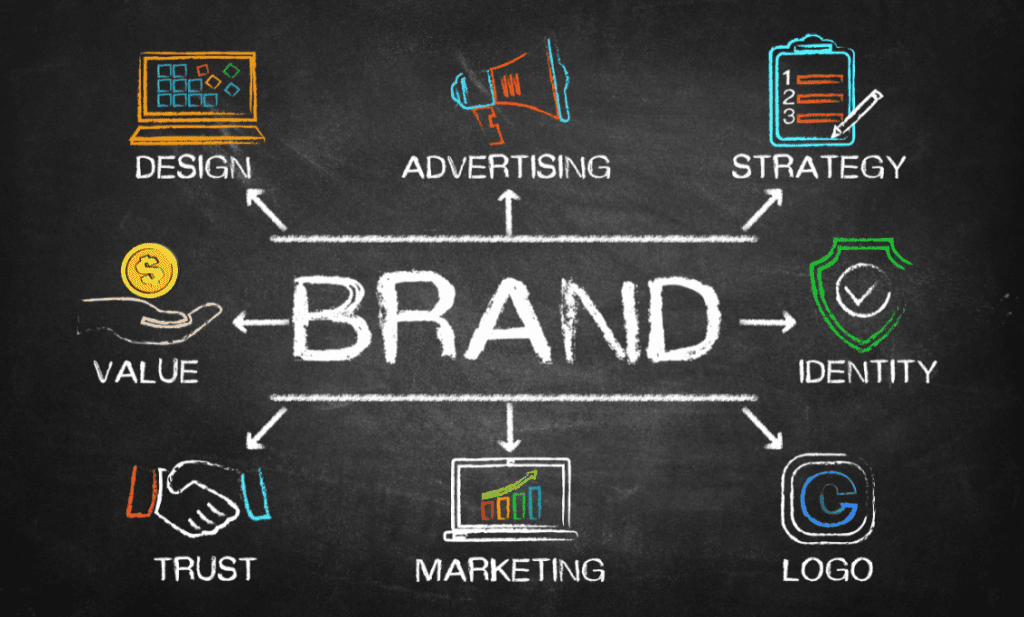
Effective branding makes a bitten-off apple a tech giant or a simple letter a name for world-famous fries. It’s not a matter of telling people what their brands mean, but telling people to remember their brands. Even if the business shuts down, people will remember a good brand for generations.
Small businesses need a good branding strategy. You don’t build a brand overnight—titans such as Apple and McDonalds have had decades of hits and misses to grow their brands. More importantly, they’ve had expert help in getting their images to their current status.

How each business promotes its brand differs depending on their budget and niche. However, a successful brand achieves these six facets:
- Gets the business recognized easily
- Grants the business more leverage
- Attracts new customers
- Instills pride among employees
- Fosters trust across the market
- Supports advertising
Sounds simple, right?
If that were the case, then disasters such as Pepsi’s 2017 ad starring Kendall Jenner wouldn’t have existed. The company indeed got recognized but for the wrong reasons, hurting both its brand and Jenner’s. A mom-and-pop shop not careful about its brand can end before it gets a chance to grow.
The long journey of promoting and nurturing a brand starts with getting creative services such as Appetite Creative. Your brand will mean everything to you, so spare no expense in getting the best your budget can afford. Below are a few tips for finding the right one.
1. Experience is Everything

Nearly every branding agency has a homepage that sports its portfolio of brands they’ve worked with over the years. Think of those brands as medals in a general’s uniform—they wouldn’t earn them without blood, sweat, and tears.
The diversity of an agency’s portfolio also says a lot about its creativity, which you need a load of in your brand strategy. Check their website for case studies or posts on how the agency enhanced a brand’s image. Collect as much information as you can—metrics, analyses, etc.—by any means. Without this vital information, gauging an agency’s expertise will be nearly impossible.
2. Size It Up

More prominent branding agencies can field teams of creatives depending on the client’s needs. A small but up-and-coming business may receive their least experienced team, reserving their cream of the crop for big-ticket projects.
Small players don’t need to have a brand strategy that rivals that of the big ones. As mentioned earlier, brands take time to grow. Consider asking a smaller agency where they’re more likely to dedicate their full attention to your business. After all, they want to make it big in their industry as much as you do in yours. Of course, you still should consider experience when choosing among the small agencies.
3. Think Like a Millennial

At 72.1 million in 2019, millennials (born 1981 to 1996) have surpassed baby boomers (born 1946 to 1964) as the largest generation group in the U.S. A 2014 study also considered them to be bigger spenders, with total estimates close to $600 billion or 21% of consumer purchasing power. That’s why recent branding strategies have leaned closer to the millennial market than before.
Your brand and your choice of a branding agency have to cater to this generation. Among the traits of millennials worth taking into account include:
- They can tell a friend or two.
- They can sense insincerity.
- They don’t like pandering.
- They will get involved no matter what.
An agency that employs young blood into their ranks has an advantage; they know what will click among their fellow youngsters. However, they don’t like being lied to, so be truthful in what your brand wants to achieve.
4. Spare No Expense

Businesses tend to save money when and where they can, which isn’t a bad thing. Brands, however, aren’t—or shouldn’t be—one of those instances.
It’s imperative to view branding as an investment instead of an expense. You’re investing precious capital in a brand that will stay with you for generations, not spending money for one or two short-term campaigns. In the long term, a good brand will be able to reduce marketing costs in the future.

Another reason not to skimp on branding is the risk of bad results. No follow-up campaign could save a brand that could’ve been way better if the company had invested a bit more. You don’t want your business to be associated with a logo that reflects anything but your business.
Overall, brands deserve better if they’ll be carrying a business’s reputation through thick and thin. It won’t be as big as an apple or golden arches at first, but time and the right investment will turn it into something beautiful soon.



